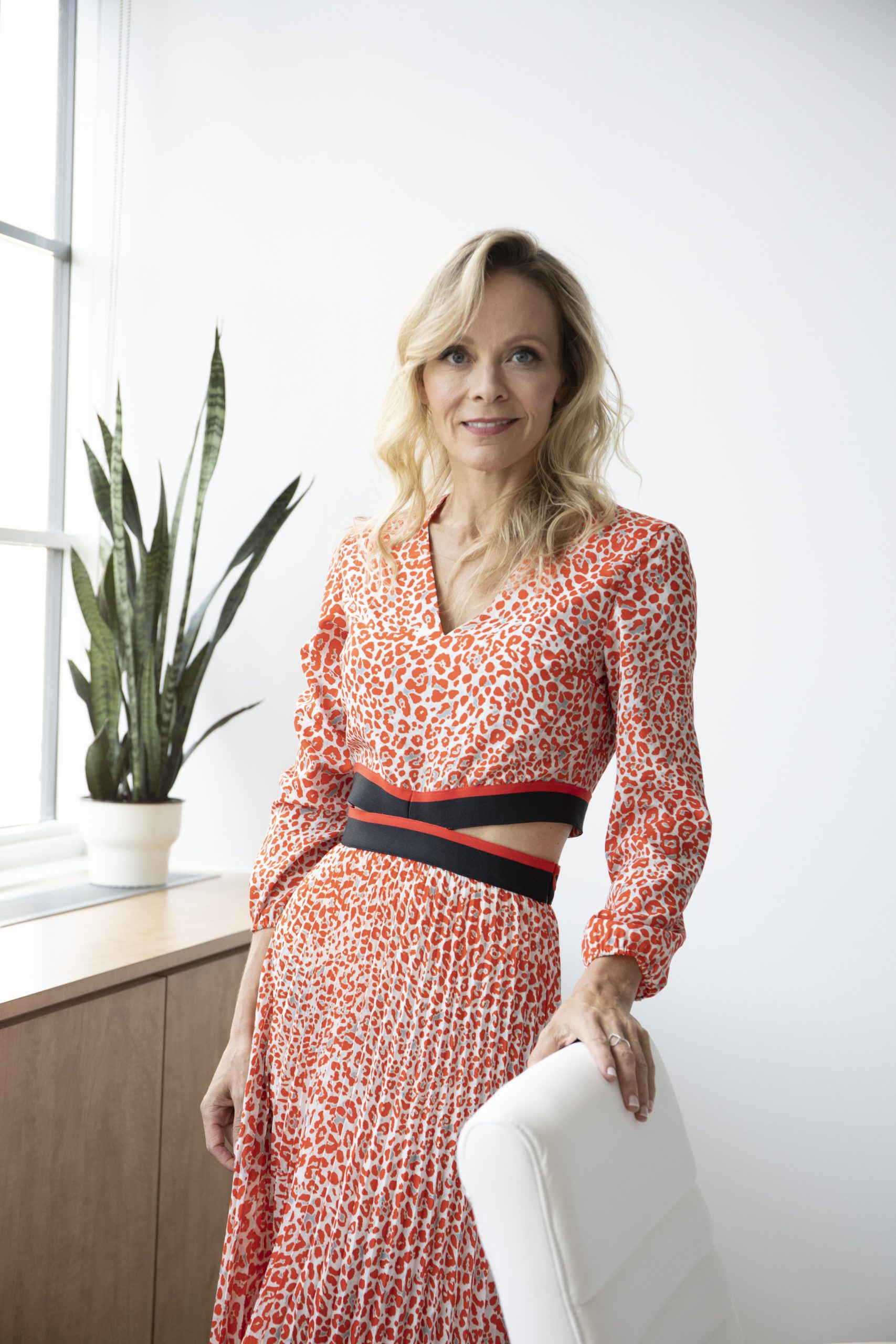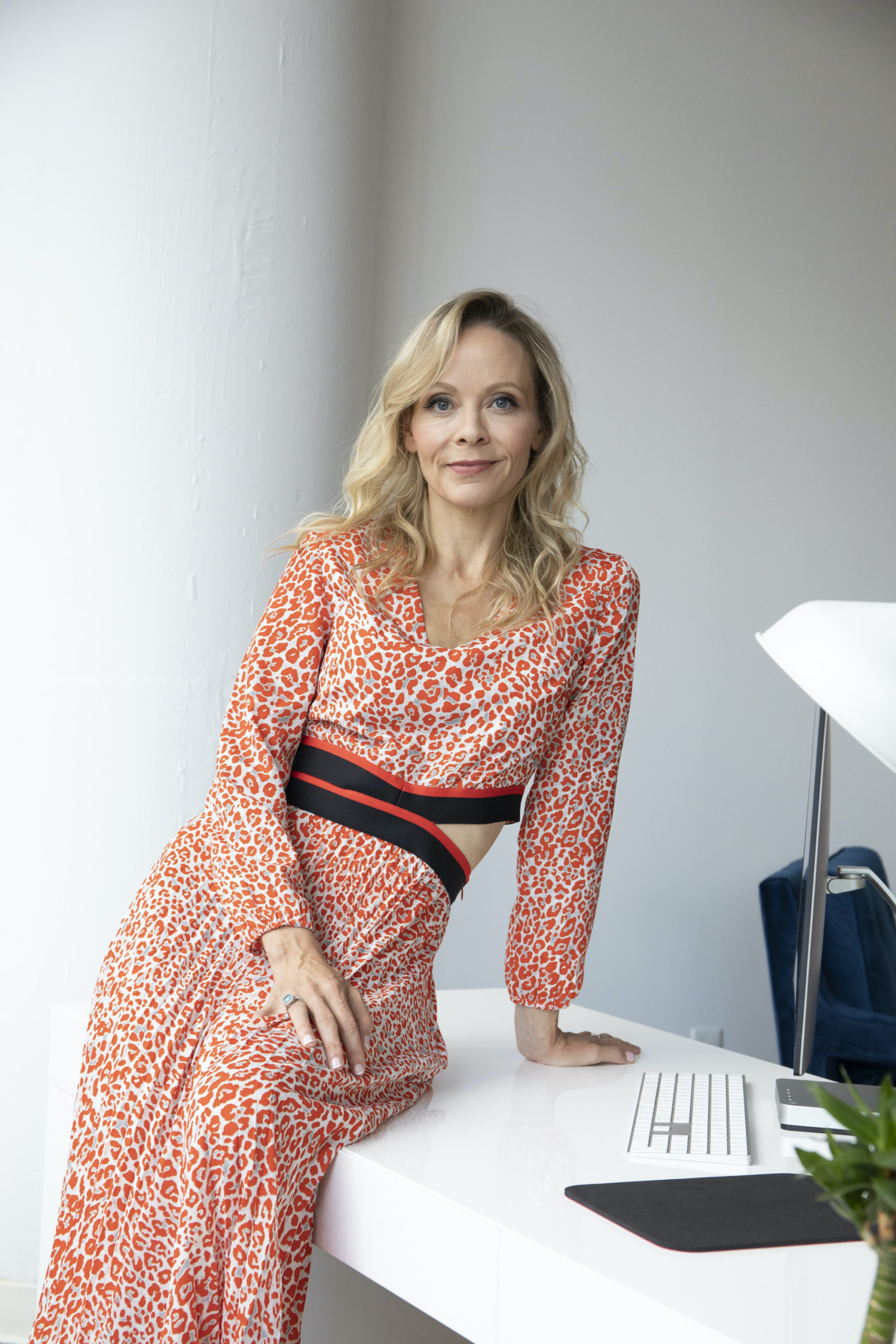Thinx CEO, Maria Molland, was brought in to save a sinking ship. Now it’s doing better than ever.
Building a successful company from scratch is hard enough, but what happens when you’re brought on to revive one that’s on the brink of self-destruction? That’s what Maria Molland faced when she joined Thinx as their new CEO. The period-proof underwear company had recently come under fire over a firestorm of allegations that ranged from poor working conditions to sexual harassment at the hands of co-founder and former CEO, Miki Agrawal. Faced with an uphill battle, Molland inherited a company that was in need of emergency triage — she had her work cut out for her. Two years into the job, she’s turned the ship around and brought focus back to a brand that values its employees and has a vision for the future.
You joined the company at a turbulent time. Why?
I went through a couple of years of back-to-back rounds of in vitro fertilization (IVF) in order to have my first child. In that process, I learned a lot from my doctors about the amount of chemicals that are in disposable feminine hygiene products, especially tampons. So, I made a list of ten companies that I thought were really disrupting spaces around women’s and reproductive health. One of those companies was Thinx. I ended up getting a call from the board two days after the birth of my daughter.
It was really fortuitous because it matched my personal interests so strongly. This was the first time that I decided to do something that was more aligned with my values. There was also a number of opportunities in a $30 billion market that were ripe for disruption because, one, there’s been no innovation in the space in literally a century. Two, the trends around women [showed us that] 55 percent of women are very concerned about the levels of toxins in traditional feminine hygiene products. And three, there is a focus on the environment and the fact that seven percent of US landfills are filled with plastic feminine hygiene products.
What drove me to [join the company] was more about the mission and where the business could go. [There] was such a huge opportunity to innovate in a space that hasn’t changed, and really needed change. I think that’s the key to taking on a hard job. If you can capture the essence of why you’re doing it and it aligns with your personal values, it will get you through those low points that are an inevitable part of a rollercoaster.
What do you do when you enter a company that needs saving? How do you sort through the rubble?
I had to analyze what state of mind the team was in. Was it going to be really hard to turn around? I discovered that it wasn’t really that bad. At the core, the team was so passionate about what they were doing and the potential of the business that they were able to get through that rocky time. They came out on the other side even stronger.
When I came in, we didn’t have any HR, so I added an HR leader and built new policies that supported what we felt are women’s issues, like childcare stipends. It’s almost impossible for parents to cover the cost of childcare and have a full-time job, especially if you’re a single parent. I think the other part was making our company very child-friendly, so we incorporated lactation rooms and parental leave policies to make things a little easier.
Then we spent a lot of time focusing on process scale and bringing on more senior people to map out our strategic roadmap. I think so much of it was understanding how to build a team around you. That is done slowly, not quickly, because for a business like ours, culture and a passion for our vision is key for every employee.
If you had to choose between cultural fit and qualifications, which would you hold in higher regard?
Cultural fit. I very much believe that you can teach the functional stuff, but you can’t really teach culture. We’ve made a few mistakes, even. We had this one woman who was fantastic at her job, but you could tell she never really loved what we did. I think she wanted more of a social experience and, at that time, we were very focused on just getting our stuff done. She ended up leaving and I wish we had been able to assess that at the very beginning.


Well, you have to assess whether the mission and vision appeal to you personally. It’s a hard road to go down, so you need to believe it at your core. Second, financials are important. [With Thinx], they were very good to the point where I would wonder how it was possible. So, I made sure that they were audited. Third, you have to look at the fundraising documentation. This was one thing that I didn’t ask for, and it was a big problem. There are all these documents that need to be amended when you go into a second round of funding. Whether or not you can get them amended is written in those documents and if those rules are difficult, which ours were, it makes fundraising very difficult and gives you fewer options. Also, for any business spending a significant amount on marketing, you need to have really high gross margins to do the type of marketing experimentation that you need to do when you’re building a consumer brand. We happen to have really high gross margins, but a lot of businesses don’t. If you have a 40 percent gross margin, it’s going to be very hard for you to ever be profitable. You need to be high so you can have lots of experimentation below it.
What are some of the challenges that you came across as a mother and leader of a company? Do you have any advice for other women in the same position?
I almost didn’t get the job because I had a little girl and someone on the board (who is no longer there) told me that they were concerned about me being a CEO. It was degrading. I wanted to prove that I could still be a good mom and a CEO. It’s hard for sure, and there are definitely days where I think that I’m not a good mother because I’m working all the time. You have all these things that go through your head and the reality is, we’re too hard on ourselves. You have to let the small stuff go. You don’t have to be a supermom everyday, and you don’t need to be a super CEO everyday. You can’t do it all and I think women, especially, tend to be extremely hard on themselves. You can do anything, you just have to put one foot in front of the other.










